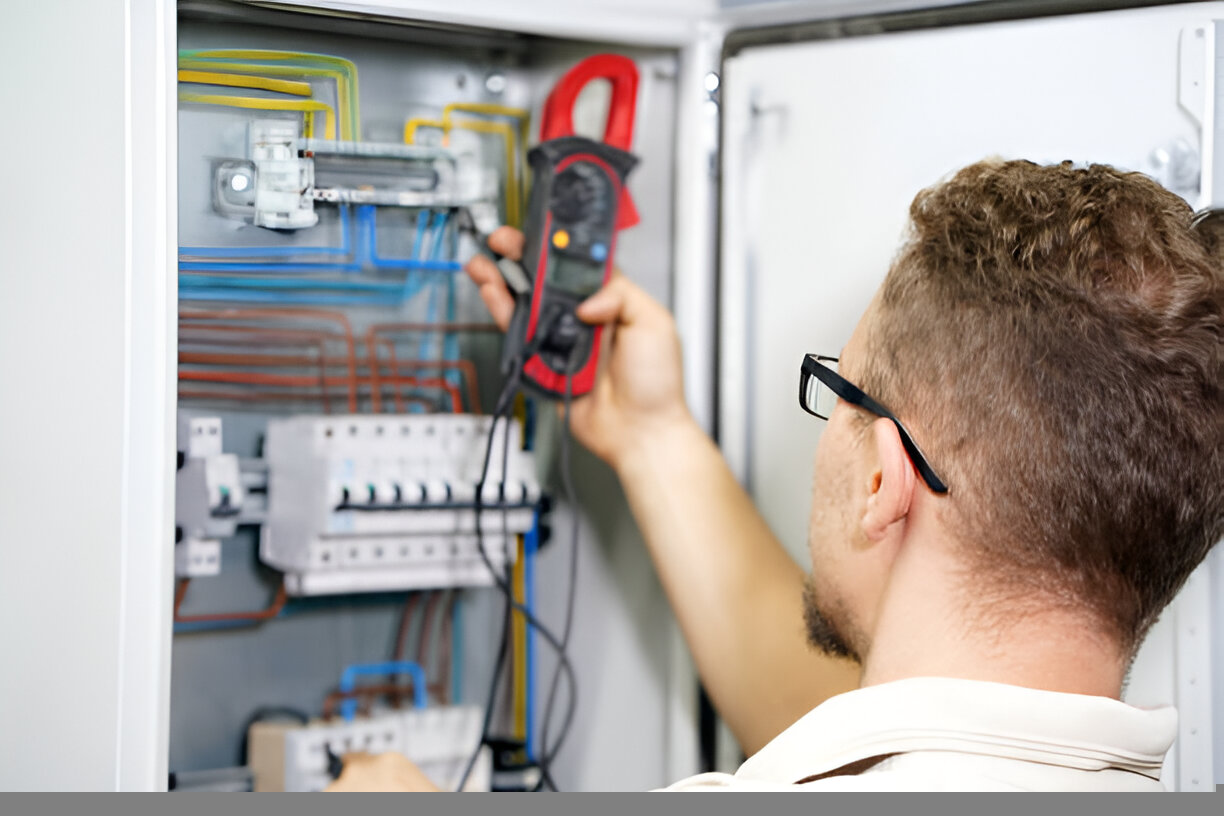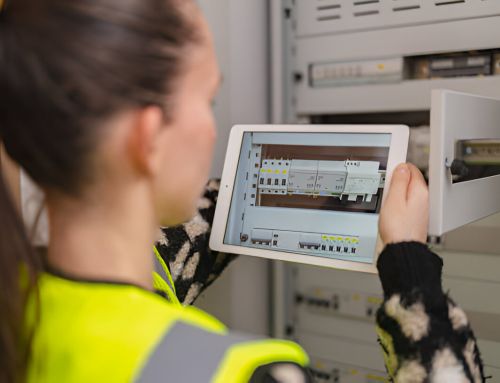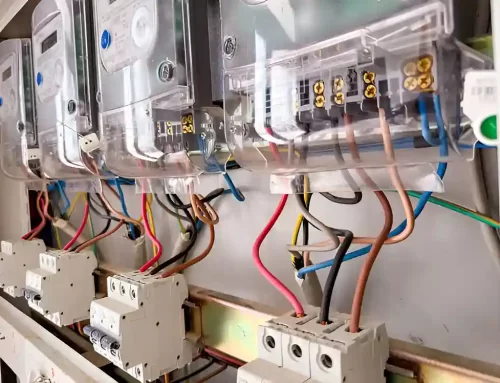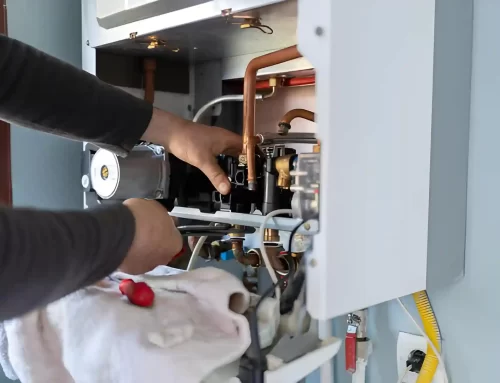
Navigating the process of obtaining an accurate EICR Quote in the UK can be discouraging. Many property owners are unaware of the complexities involved in Electrical Installation Condition Reports. Moreover, various factors can significantly impact the final cost. To ensure compliance and safety, it is essential to approach this task with careful thought and informed decision-making. There are key insights that can assist you through this process.
Main points
- Research and select qualified electricians or companies with proper accreditations for dependable EICR services.
- Request detailed quotes that clearly outline inspection procedures, costs, and any extra charges.
- Compare various quotes to understand pricing differences and the range of services provided.
- Make sure to communicate clearly with the electrician about your expectations and any specific property requirements.
- Keep a record of all inspections and follow-up actions to ensure compliance and safety.
What exactly is an EICR, and why do you need it?
An Electrical Installation Condition Report (EICR) is an integral document used to assess the safety and state of electrical systems within a property. A qualified electrician usually carries out this report, which includes a comprehensive inspection of the electrical systems, such as wiring, outlets, and fittings.

The EICR determine dangerous situations, non-compliance with regulations, and areas requiring maintenance or repair. Property owners may need an EICR for various reasons, such as ensuring tenant safety in rental properties or meeting legal requirements.
Regular EICR assessments help prevent electrical accidents and ensure peace of mind regarding electrical safety. Additionally, they serve as a helpful tool when buying or selling property, as they can influence negotiations and insurance coverage.
The Role of an Electrical Installation Condition Report
While the primary function of an Electrical Installation Condition Report (EICR) is to evaluate the safety and performance of a property’s electrical systems, it also serves multiple significant purposes. An EICR not only spot unsecure dangers but also provides peace of mind to both property owners and tenants. This report is necessary for meeting legal compliance and safety standards for properties. Additionally, it aids in the maintenance of electrical installations, helping to prevent future issues.
| Purpose | Emotion Evoked | Impact |
|---|---|---|
| Safety Examination | Relief | Lowers the chance of electrical fires |
| Legal Compliance | Security | Protects against legal repercussions |
| Maintenance Insight | Confidence | Encourages proactive management |
| Tenant Assurance | Trust | Builds a safer living environment |
Through these different objectives, the EICR is essential in enhancing electrical safety and ensuring reliability.
What’s Included in an EICR Quote?
A detailed EICR quote usually highlights several key elements necessary for understanding the scope and cost of the inspection.
It begins with a comprehensive overview of the inspection services provided, specifying what will be evaluated, including wiring, sockets, and circuit integrity.
Next, the quote provides information about the qualifications and experience of the electrician conducting the inspection, ensuring credibility.
Additionally, it should specify the expected inspection duration and any preparatory steps needed. The quote should also outline the pricing structure, including any additional costs for repairs that may be required after the inspection. Finally, clients should receive information about the report delivery timeline, so they know when to expect the results. Understanding these elements helps clients make informed choices and promotes transparency in the service.
Factors That Influence Your Final Quote
Multiple factors can substantially impact the final quote for an Electrical Installation Condition Report (EICR). One significant element is the size and complexity of the property. Larger properties or those with complex electrical systems may require more time and specialised skills, resulting in increased costs.
Another factor is the condition of the existing electrical system. If the system exhibits signs of wear or damage, additional testing may be required, which could impact the overall EICR quote.
Location also influences pricing; quotes can differ by region due to variations in labour costs and market demand. Additionally, the qualifications and experience of the electrician or inspection company can influence costs, with reputable companies often charging higher fees.
Finally, any specific requirements or extra services requested by the property owner, such as follow-up reports or certification, can affect the final quote. Understanding these factors helps homeowners more accurately estimate costs.
How to Get a Reliable EICR Quote
Obtaining a reliable Electrical Installation Condition Report (EICR) quote requires careful planning and a creative method. Individuals should start by researching qualified electricians or inspection companies, making sure they are registered with recognised bodies, such as NICEIC or ELECSA.
It is essential to gather multiple quotes to compare prices and services, while ensuring each quote explicitly details the scope of work.
Next, property owners should communicate their specific needs, including the property’s size and any existing electrical issues. This openness enables electricians to provide a more accurate quote.
Furthermore, reviewing online feedback and obtaining recommendations from reliable sources can improve the selection process.
Finally, it is wise to inquire about any additional fees that may apply, such as travel costs or re-testing charges. Following these steps helps individuals obtain a trustworthy EICR quote that suits their needs while maintaining safety and compliance.
EICR Quote for Landlords vs. Homeowners
While both landlords and homeowners need an Electrical Installation Condition Report (EICR), the quotes they receive can vary significantly due to different factors.
Landlords often manage multiple properties and face stricter regulations, which may result in more thorough inspections and increased costs. They also need to ensure their properties meet safety standards for tenants, which requires a detailed assessment of the electrical systems.

In contrast, homeowners might request an EICR mainly for personal safety or to meet mortgage requirements. Their needs are often simpler, leading to quicker assessments and lower quotes.
Furthermore, landlords can negotiate bulk rates with electricians if they own multiple properties, which can further influence the cost. Understanding these differences helps both parties prepare for the financial implications of obtaining an EICR, ensuring they receive accurate and fair quotes tailored to their specific situations.
How Property Size and Location Affect Your EICR Quote
The size and location of a property significantly affect the cost of an EICR quote. Larger properties usually require more detailed testing and inspection, which can increase labour and material costs. The number of circuits and electrical fittings also grows with size, further influencing the total price.
Furthermore, the location significantly influences pricing; properties in urban areas tend to command higher rates due to increased living costs and greater demand for qualified electricians. Conversely, rural areas may encounter issues such as longer travel times for professionals, which can also impact the quotation.
Accessibility is another factor; properties that are difficult to access may require more time and resources, resulting in higher charges. Homeowners and landlords should be aware of these considerations to understand their EICR quotes better and plan their budgets effectively, ensuring they receive a fair and precise assessment of their electrical systems.
Red Flags to Watch Out for in Cheap EICR Quotes
When assessing EICR quotes, especially those that are significantly lower than the market average, several warning signs may suggest problems. One primary concern is the absence of accreditation; trustworthy electricians should possess the necessary qualifications to ensure their work is reliable and trustworthy. If a quote originates from an unverified source, it’s wise to exercise caution.
Additionally, suspiciously low prices may indicate corners are being cut, undermining the quality of the inspection or the materials used. Another warning sign is the lack of a detailed breakdown of services included in the quote. Transparent pricing is essential; vague quotes can hide significant costs later.
Lastly, a quick turnaround promise might suggest insufficient assessment time, leading to overlooked electrical issues. By being alert to these red flags, property owners can better protect themselves against poor services and ensure that their EICR is both comprehensive and compliant with regulations.
Landlord certificate London provides the most reliable service with affordable pricing.
Getting the Most Value from Your EICR Quote
Getting the best value from an EICR quote requires an innovative way to understand the services provided. Homeowners should start by carefully reviewing the quote details to ensure it includes a comprehensive inspection of the electrical system.
It is essential to verify the qualifications and experience of the electrician or company providing the quote, as this can significantly impact the quality of the service received. Additionally, comparing several quotes can help highlight differences in pricing and service details, enabling you to make a well-informed choice.
Clear communication about what is included in the inspection, such as testing procedures and report delivery, is also essential. Finally, homeowners should inquire about any follow-up services or repair recommendations, as these can help ensure long-term electrical safety and compliance.
Key Differences in EICR Quotes and Legal Needs
Understanding the key differences in EICR quotes and legal requirements is essential for both homeowners and landlords, as adherence to electrical safety regulations varies considerably across different contexts.
EICR quotes can vary significantly based on several factors that influence legal obligations.
- Property Type: Residential versus commercial properties may have different inspection requirements.
- Frequency of Testing: Legal mandates dictate how often EICRs must be conducted, influencing the costs involved.
- Scope of Work: Quotes may vary based on whether only a visual inspection or complete testing is required.
- Local Regulations: Different regions may enforce unique compliance standards, impacting the final quote.
Frequently Asked Questions
How Long Does an EICR Inspection Usually Take?
An EICR inspection typically takes between one and four hours, depending on the property’s size and complexity.
Factors influencing the duration include the number of circuits, accessibility of electrical installations, and any issues that may arise during the assessment.
Larger commercial buildings may require more extensive evaluations, while smaller residential properties generally take less time.
Understanding these variables can help property owners anticipate the duration of the inspection process.
Can I Get an EICR if My Property Is Under Renovation?
It is possible to obtain an Electrical Installation Condition Report (EICR) for a property under renovation.
However, the inspector may face challenges in accurately evaluating the electrical system if it is partially dismantled or if access to certain areas is restricted.
The report may reflect the current state of the electrical installations, but it is advisable to conduct a follow-up inspection once renovations are complete to guarantee thorough safety compliance.
What Qualifications Should My EICR Electrician Have?
When seeking an EICR electrician, it is essential to guarantee that they possess the necessary qualifications.
A qualified electrician should be registered with a recognised body, such as NICEIC or ELECSA, indicating adherence to industry standards.
Additionally, they should hold relevant qualifications, including a Level 3 Certificate in the Requirements for Electrical Installations and an understanding of the IET Wiring Regulations.
Experience in conducting EICRs is also essential for guaranteeing a thorough assessment.
How Often Should I Schedule an EICR for My Property?
The frequency of scheduling an Electrical Installation Condition Report (EICR) depends on several factors.
Typically, it is recommended every five years for rental properties or when there is a change of occupancy.
Homeowners should consider an EICR every ten years or sooner if significant alterations are made.
Additionally, properties with higher electrical usage or older installations may require more frequent inspections to guarantee safety and compliance with regulations.
Is an EICR Required for Commercial Properties in the UK?
An Electrical Installation Condition Report (EICR) is necessary for commercial properties in the UK.
Regulations require that these properties undergo periodic inspections to ensure that their electrical systems are safe and compliant with current standards.
The frequency of inspections may vary depending on the nature of the business and the type of electrical installations present.
Ultimately, obtaining an EICR helps mitigate risks, ensuring both employee safety and compliance with legal obligations regarding electrical safety in commercial environments.
Conclusion
In conclusion, obtaining an accurate EICR quote in the UK requires careful consideration of several factors, including the electrician’s qualifications and the specific details of the property. By understanding the components of an EICR quote and recognising red flags in low-cost options, property owners can make informed decisions about their electrical safety. Ultimately, prioritising quality and compliance guarantees safety and value, safeguarding against future electrical issues while fulfilling legal obligations.
About the Author: LandlordCertificate
Related Posts
Get Social
Recent Posts
- Asbestos Management Survey London: Update Your Property Records
- Gas Safety Certificate London: Why Regular Checks Save Money Long-Term
- FRA London Explained: How a Professional Fire Risk Assessment Keeps You Compliant and Safe
- When a New Tenancy Requires Your EICR Certificate London Renewal
- Fire Safety Certificate London: Integrating Fire Alarms and Emergency Lighting













